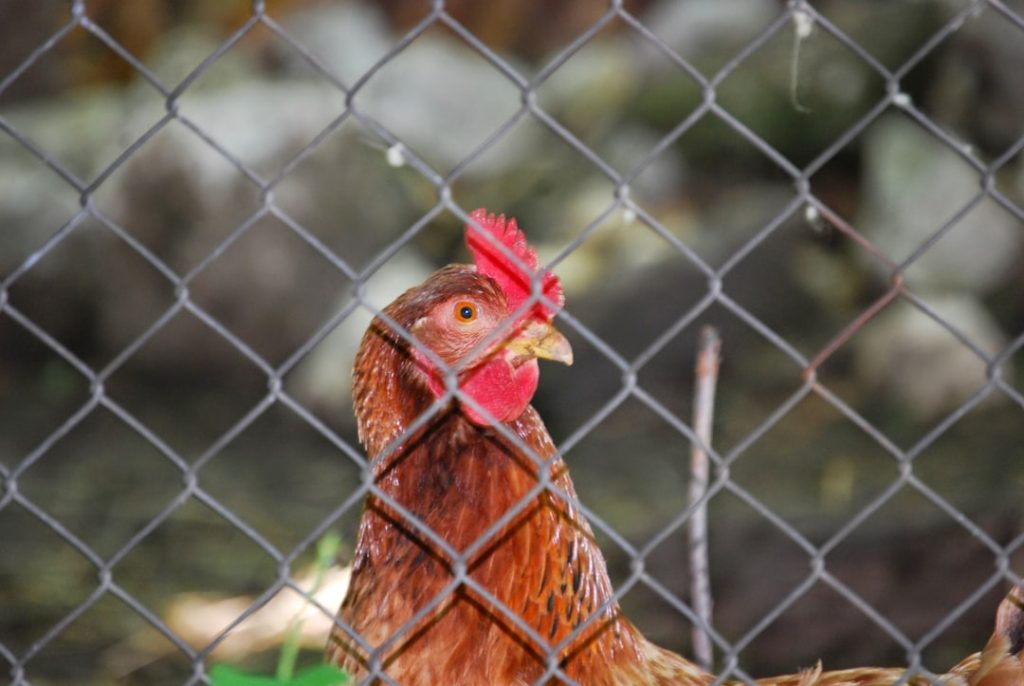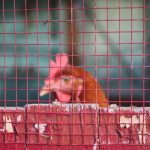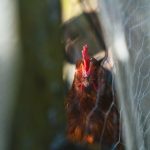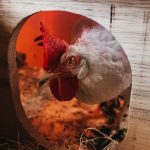Chickens are social creatures that thrive in flocks. They possess innate behaviors such as foraging, dust bathing, and roosting at night. Comprehending these behaviors is essential for ensuring their safety within enclosed spaces.
Chickens exhibit curiosity but can be easily startled by sudden movements or loud noises. They are vulnerable to predators like foxes, raccoons, and raptors, necessitating a secure environment. Territorial behavior is common among chickens, potentially leading to aggression towards other animals or flock members when they feel threatened.
Overcrowding or stress can result in pecking and bullying within the group. Providing adequate space and environmental enrichment is crucial to prevent aggressive behaviors and maintain flock harmony. A thorough understanding of chicken instincts and behaviors is fundamental to designing and maintaining an appropriate and secure enclosure for these birds.
Table of Contents
- 1 Choosing the Right Type of Fence
- 2 Securing the Bottom of the Fence
- 3 Providing Adequate Space and Entertainment
- 4 Using Deterrents and Barriers
- 5 Training and Conditioning the Chickens
- 6 Regular Maintenance and Monitoring
- 7 FAQs
- 7.1 What are some effective ways to keep chickens from hopping a fence?
- 7.2 How tall should a fence be to prevent chickens from hopping over?
- 7.3 Is it necessary to clip chickens’ wings to prevent them from hopping a fence?
- 7.4 What are some other factors to consider when trying to keep chickens from hopping a fence?
Key Takeaways
- Chickens are social animals and exhibit natural behaviors such as scratching, pecking, and dust bathing.
- Choose a fence that is at least 6 feet tall and made of sturdy materials like wire or wood to keep chickens safe and secure.
- Secure the bottom of the fence with buried wire or concrete to prevent predators from digging underneath.
- Provide ample space for chickens to roam and include entertainment such as perches and toys to keep them active and engaged.
- Use deterrents like motion-activated sprinklers or barriers like netting to protect chickens from predators.
- Train chickens to return to their coop at night and condition them to recognize and respond to potential threats.
- Regularly inspect and maintain the fence, coop, and surrounding area to ensure the safety and well-being of the chickens.
Choosing the Right Type of Fence
Fence Height: A Key Consideration
The fence should be tall enough to prevent the chickens from flying over it, as they are known to be good jumpers and can easily escape if the fence is too low. A fence with a minimum height of 6 feet is recommended to keep the chickens contained within the designated area.
Material Selection: Durability and Safety
The material of the fence is also important, as it should be sturdy enough to withstand the weather and potential predators. Chicken wire is a popular choice for chicken fences, as it is durable and provides good visibility while keeping the chickens safe. However, it’s important to ensure that the gaps in the chicken wire are small enough to prevent predators from entering the fenced area.
Visibility and Aesthetics: A Balance Between Privacy and Freedom
Another important consideration when choosing the right type of fence is the visibility and aesthetics. A solid fence may provide more privacy and protection from predators, but it can also make it difficult to monitor the chickens and may feel confining for them. A wire mesh fence provides good visibility and allows the chickens to see their surroundings, which can help reduce stress and anxiety.
Securing the Bottom of the Fence
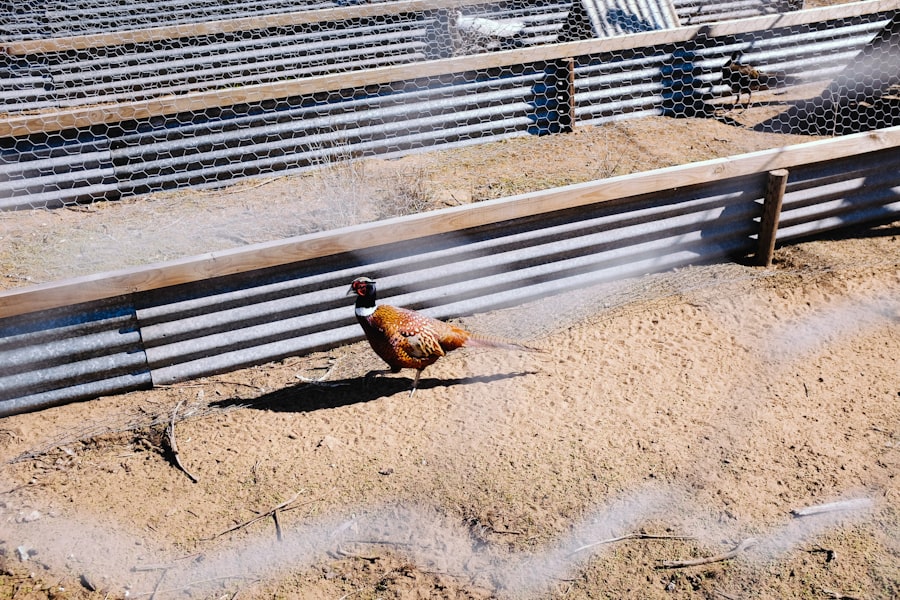
Securing the bottom of the fence is crucial when it comes to keeping chickens safe and secure within their designated area. Chickens are known to be good diggers and can easily escape if the bottom of the fence is not properly secured. It’s important to bury the bottom of the fence at least 12 inches deep to prevent the chickens from digging underneath it.
Another option for securing the bottom of the fence is to use hardware cloth or welded wire mesh that extends outward from the base of the fence. This will prevent predators from digging underneath the fence and gaining access to the chickens. It’s also important to regularly inspect the bottom of the fence for any signs of wear or damage, as predators can exploit even small openings to gain access to the fenced area.
In addition to securing the bottom of the fence, it’s important to consider adding a predator apron or skirt around the perimeter of the fenced area. This involves laying wire mesh flat on the ground around the outside of the fence, which prevents predators from digging underneath it. Securing the bottom of the fence is essential for keeping chickens safe and secure within their designated area.
Providing Adequate Space and Entertainment
Providing adequate space and entertainment is essential for keeping chickens happy and healthy within a fenced area. Chickens thrive in a spacious environment where they can roam, forage for food, and dust bathe. Overcrowding can lead to stress, aggression, and pecking within the flock, so it’s important to provide enough space for all the chickens to move around comfortably.
In addition to providing adequate space, it’s important to provide entertainment and enrichment for the chickens. This can include hanging treats or toys from the ceiling of the coop, providing perches for roosting, and creating areas for dust bathing. Enrichment activities such as scattering food around the fenced area or providing objects for pecking can help keep the chickens occupied and prevent boredom.
It’s also important to provide access to fresh water, food, and shelter within the fenced area. Chickens should have access to a secure coop where they can roost at night and lay eggs, as well as access to a run where they can roam during the day. Providing adequate space and entertainment is essential for keeping chickens happy and healthy within a fenced area.
Using Deterrents and Barriers
Using deterrents and barriers can help prevent predators from gaining access to the fenced area and keep chickens safe and secure. One effective deterrent is motion-activated lights or sound devices that can startle predators and deter them from approaching the fenced area. Another option is using predator scent deterrents such as coyote urine or predator decoys that can help keep predators at bay.
Barriers such as electric fencing or netting can also be effective in preventing predators from gaining access to the fenced area. Electric fencing delivers a mild shock to predators that come into contact with it, deterring them from attempting to breach the fence. Netting can be used to cover the top of the fenced area to prevent birds of prey from swooping down and attacking the chickens.
It’s important to regularly inspect and maintain deterrents and barriers to ensure they are functioning properly and effectively deterring predators. Using a combination of deterrents and barriers can help keep chickens safe and secure within their fenced area.
Training and Conditioning the Chickens
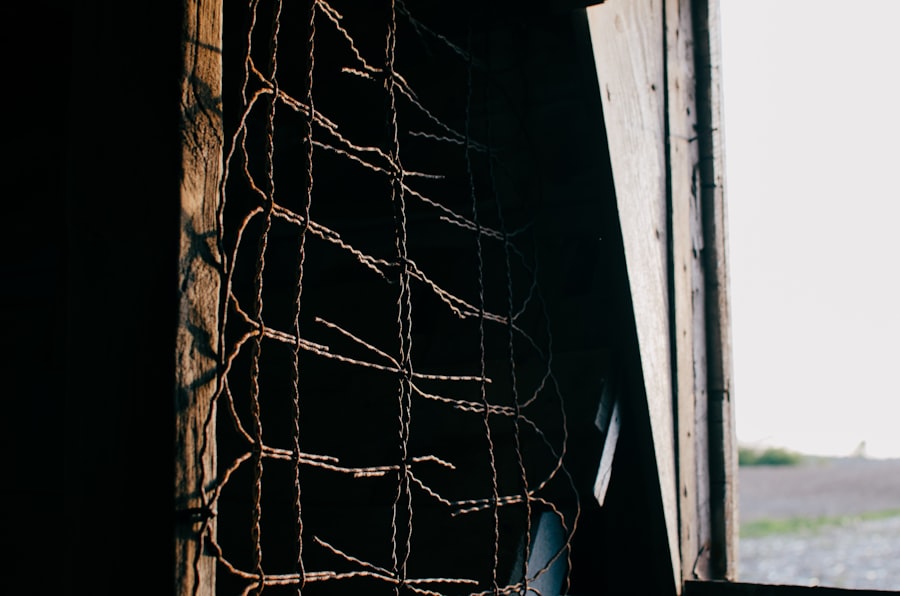
Teaching Chickens to Return to Their Coop
Chickens can be trained to return to their coop at night by using treats or food rewards. This helps prevent them from roosting in unsafe areas outside of their fenced area. Conditioning them to respond to certain cues or signals can also keep them safe and secure within their designated area.
Building Trust Through Positive Reinforcement
Spending time with your chickens in their fenced area is crucial. Observe their behavior and provide positive reinforcement for desired behaviors, such as returning to their coop at night or using designated areas for dust bathing. This helps build trust between the chickens and their caretakers, reducing stress and anxiety within the flock.
Regular handling and socialization with your chickens can help them become more comfortable with their surroundings. This reduces fear or aggression towards humans, making it easier to care for them. By investing time and effort into training and conditioning your chickens, you can keep them safe and secure within their fenced area.
Regular Maintenance and Monitoring
Regular maintenance and monitoring of the fenced area are essential for keeping chickens safe and secure. It’s important to regularly inspect the fence for any signs of wear or damage, such as loose wires or broken posts, which can compromise its effectiveness in keeping predators out. Repairing any damage promptly can help prevent predators from gaining access to the fenced area.
In addition to regular maintenance, it’s important to monitor the behavior of the chickens within their fenced area. This includes observing their interactions with each other, looking for signs of stress or aggression, and ensuring they have access to food, water, and shelter. Monitoring their behavior can help identify any potential issues or concerns that need to be addressed.
Regular maintenance and monitoring of the fenced area are essential for keeping chickens safe and secure within their designated space. By staying vigilant and proactive in maintaining a secure environment for the chickens, caretakers can help ensure their safety and well-being.
If you’re looking for more tips on keeping chickens, you might be interested in this article on how to build a chicken coop trampoline. This article provides a creative solution for keeping chickens from hopping a fence by creating a secure and enjoyable space for them to roam. It’s a great resource for anyone looking to improve their chicken coop setup.
FAQs
What are some effective ways to keep chickens from hopping a fence?
Some effective ways to keep chickens from hopping a fence include installing a taller fence, using netting or wire over the top of the fence, clipping the chickens’ wings, and providing enough space and entertainment within their enclosure to discourage them from trying to escape.
How tall should a fence be to prevent chickens from hopping over?
A fence should ideally be at least 6 feet tall to prevent chickens from hopping over. This height will make it more difficult for them to gain enough height and momentum to successfully clear the fence.
Is it necessary to clip chickens’ wings to prevent them from hopping a fence?
Clipping chickens’ wings is not always necessary, but it can be an effective way to prevent them from hopping a fence. This practice involves trimming the primary feathers on one wing, which temporarily limits their ability to fly and jump over fences.
What are some other factors to consider when trying to keep chickens from hopping a fence?
In addition to installing a taller fence and potentially clipping their wings, it’s important to provide enough space, enrichment, and attention to the chickens within their enclosure. Boredom and overcrowding can lead to escape attempts, so ensuring their needs are met can help prevent them from trying to hop the fence.
Meet Walter, the feathered-friend fanatic of Florida! Nestled in the sunshine state, Walter struts through life with his feathered companions, clucking his way to happiness. With a coop that’s fancier than a five-star hotel, he’s the Don Juan of the chicken world. When he’s not teaching his hens to do the cha-cha, you’ll find him in a heated debate with his prized rooster, Sir Clucks-a-Lot. Walter’s poultry passion is no yolk; he’s the sunny-side-up guy you never knew you needed in your flock of friends!

